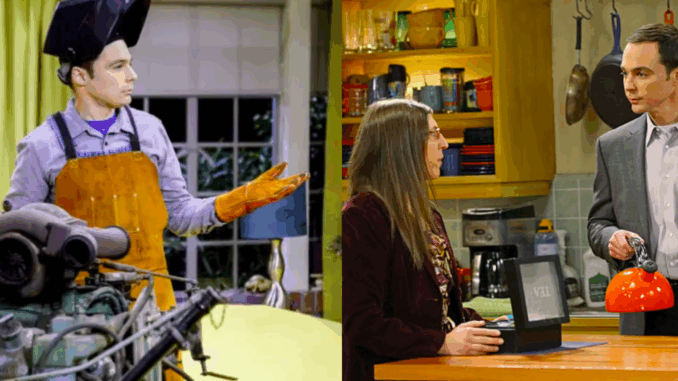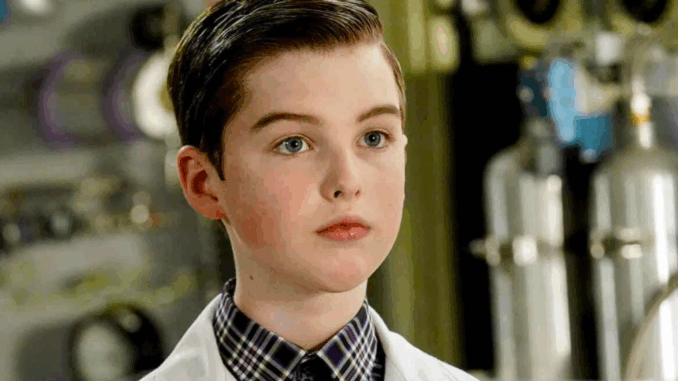
Sheldon Cooper, played by Jim Parsons, is undeniably one of the most iconic and beloved characters in The Big Bang Theory. His eccentricities, neurotic tendencies, and intellectual brilliance have made him a standout figure in the world of television. But beyond the laughs and quirks, Sheldon plays a crucial role in the dynamics of the show. His personality is often at the center of the group’s conflicts and growth, but there is a deeper reason why his character resonates so strongly with audiences. This article delves into why Sheldon’s quirks and unique behaviors are so integral to the success of The Big Bang Theory and the broader impact of his character.
Sheldon’s Intellectual Superiority: A Blessing and a Curse
Sheldon is often portrayed as the “smartest guy in the room,” with an IQ that is off the charts, but this intellectual superiority also becomes one of his greatest challenges in social and personal relationships. His inability to understand social cues, lack of empathy, and obsession with routine make him seem disconnected from the world around him. However, these very traits contribute to the humor and charm that define Sheldon’s character.
At the same time, Sheldon’s brilliance drives much of the show’s plotlines, particularly in his interactions with the group. His scientific mind and quest for perfection provide a stark contrast to his friends’ more grounded, emotional perspectives. This clash between intellect and emotion is not only a source of comedy but also a commentary on the balance between logic and human connection.
The Role of Sheldon’s Relationships: Growth and Transformation
While Sheldon may initially appear to be a solitary, self-absorbed character, his relationships with others are central to his development throughout the show. Perhaps the most significant relationship is that between Sheldon and Amy Farrah Fowler (Mayim Bialik). When Sheldon first meets Amy, he views her as a fellow intellectual peer, but their relationship evolves into one of mutual respect, deep affection, and eventual romantic love.
Amy’s influence on Sheldon is profound, helping him navigate the complexities of social relationships, empathy, and vulnerability. Over time, Sheldon learns to open up emotionally, something that was once almost impossible for him. His growth as a partner and a friend shows that even the most “rational” individuals can evolve emotionally and socially, which is a key theme in The Big Bang Theory.
Sheldon’s relationship with his best friend Leonard Hofstadter (Johnny Galecki) is equally pivotal. Leonard often acts as the mediator between Sheldon and the rest of the group, guiding Sheldon through social interactions and emotional moments. The dynamic between these two characters highlights the importance of friendship, patience, and understanding, as Leonard often sacrifices his own needs to accommodate Sheldon’s demands. Their bromance provides a perfect contrast to the romantic developments on the show and showcases the different forms of love and support that exist.
Sheldon’s Autistic-Like Traits: Representation and Awareness
While Sheldon’s character is never explicitly labeled as being on the autism spectrum, his behaviors and quirks have drawn significant discussion about his possible connection to autism spectrum disorder (ASD). His obsessive-compulsive tendencies, social difficulties, lack of empathy, and rigid routines are often associated with traits seen in individuals on the autism spectrum.
Sheldon’s portrayal sparked a broader conversation about neurodiversity and the representation of people with autism on television. While the show doesn’t aim to diagnose or label Sheldon’s behavior, it opens the door to important discussions about how society views people who are different. Sheldon’s character is neither portrayed as a stereotype nor as someone who needs to be “fixed.” Instead, he is shown as a complex, multi-dimensional character who, despite his quirks, is loved and valued by his friends.
Through Sheldon’s lens, viewers gain a better understanding of how individuals who may seem “different” still experience the same range of emotions, struggles, and joys as anyone else. His character serves as a reminder that neurodiversity should be celebrated, and that people who think differently can offer unique perspectives and contributions to the world.
Sheldon’s Influence on Pop Culture: “Bazinga!” and Beyond
One of Sheldon’s most lasting contributions to pop culture is his catchphrase “Bazinga!” which became synonymous with his playful yet awkward humor. Over the years, this phrase became iconic, cementing Sheldon’s place in television history. But beyond the catchphrase, Sheldon’s unique way of thinking and communicating has become a defining trait of his character, influencing everything from memes to academic discussions about human behavior.

Moreover, Sheldon’s love for science and his obsession with comic books, video games, and other niche interests helped elevate the geek culture that The Big Bang Theory often celebrated. His character has inspired countless individuals to embrace their intellectual passions and quirks, demonstrating that it’s okay to be unapologetically yourself, even if it means standing out from the crowd.
The Enduring Legacy of Sheldon Cooper: A Character for the Ages
Sheldon Cooper’s character, while eccentric and often difficult, is undeniably one of the most well-written and impactful characters in the history of television. His journey from an isolated, socially awkward genius to a more emotionally mature individual who understands the value of friendship, love, and empathy is both heartwarming and groundbreaking.
The character of Sheldon teaches us that intelligence and emotional depth are not mutually exclusive. His development showcases the importance of self-awareness, the power of relationships, and the value of being true to oneself, no matter how unconventional that may be. Sheldon’s legacy lives on as a symbol of how far-reaching and transformative a well-crafted character can be, not just in entertainment, but in shaping public perceptions of neurodiversity and intellectualism.
In conclusion, Sheldon Cooper’s quirks and behaviors are not just for comedic effect, but also serve a deeper purpose in The Big Bang Theory. His intellectual brilliance, paired with his emotional journey, allows viewers to connect with him on a level that transcends his awkwardness. Sheldon’s impact goes beyond the show, influencing pop culture, social discussions, and even how we view people who are different from ourselves. He is a reminder that our quirks and imperfections are what make us human, and that growth and understanding can happen in the most unexpected ways.